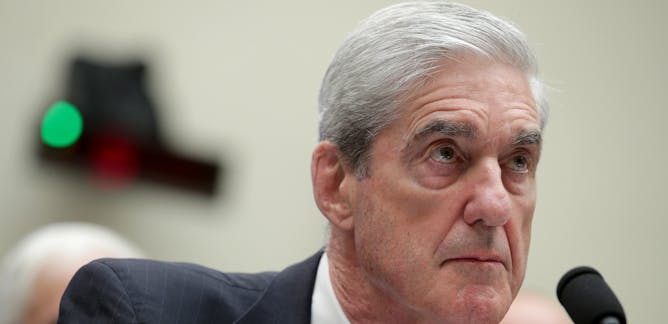
Articles on 2016 US presidential election
Displaying 1 - 20 of 638 articles

What Trump knew about alleged Russian meddling in the 2016 presidential election remains an open question despite the nearly two-year investigation by Special Counsel Robert Mueller.

When people cut personal, interracial or interreligious ties because of political differences, the societal impact can be the same as forced segregation.

Studies of online echo chambers don’t paint the full picture of Americans’ political segregation. New research shows that the problem is more Fox News Channel and MSNBC than Facebook and Twitter.

Russia’s propaganda signalled a full-scale invasion of Ukraine a long time ago.

Scott Morrison has lost no time pivoting to the incoming US presidency, declaring on Sunday he hopes Joe Biden and his wife Jill will visit Australia for next year’s 70th anniversary of ANZUS.

Indonesia is a strategic country for the United States and the cooperation between the two countries will only grow.

University of Canberra Professorial Fellow Michelle Grattan and University of Canberra Assistant Professor Caroline Fisher discuss the week in politics.

Russian interference deeply marked the 2016 American presidential election. Four years later, let’s analyze the form and impact of disinformation coming from Russia.

Russian-affiliated Twitter accounts changed what they posted about, and used both text and images in ways that shed light on how these information warriors work.

Hillary Clinton got the most individual votes from US citizens in 2016, but Donald Trump won the most electoral votes.

Trump lives by the maxim that you can get away with almost anything as long as you’re not boring. This doesn’t make him an outlier – he’s emblematic of our contemporary pop culture.

Facebook serves as a gatekeeper of the information diets of more than 200 million Americans and 2 billion users worldwide.

The more candidates that there are, the likelier it is that voters cannot come to a consensus on the best candidate.

Amid all the Mueller report uncertainty, one thing is clear: Donald Trump did some wildly improper things to win the presidency. So did Thomas Jefferson, Andrew Jackson, JFK and George W. Bush.

On the back of the Mueller investigation’s apparent exoneration of the POTUS, here’s another surprise.

Back in 2016, the Brexit vote and US presidential election seemed like a nationalist one-two punch that could knock out the European Union. Instead, EU support actually rose, new research shows.

When political polls are aggregated together, that can make the results misleading.

How do you know whether to trust a poll? Look carefully at how it was conducted – and examine your own biases.

Although some social media users are able to monetize their social media “likes,” much of the pursuit of popularity amounts to nothing and instead turns us into pawns for political and commercial uses

The legal travails of Paul Manafort and Michael Cohen bring the Mueller investigation into the White House.





